I am trying to invoke a method through reflection on an EJB that has been looked up through its JNDI reference. It requires three arguments: a EndUser object (custom object), a Set (custom class) and a boolean. The first object causes the invocation to fail with a "Could not invoke method: java.lang.IllegalArgumentException: argument type mismatch". This occurs as long as the first argument is non-null. Setting it to null makes the error go away.
The actual call:
public Relation createRelation(final Relation relation, final HashSet<Contact> contacts) {
final EndUser user = new EndUser();
Object[] args = new Object[]{user, contacts, false};
try {
return (Relation) EjbUtils.invoke("registerEndUser", REGISTRATION_SERVICE_JNDI, args);
} catch (final Throwable throwable) {
LOGGER.error("Could not invoke method", throwable);
return null;
}
}
The EjbUtils method:
public static Object invoke(final String methodName, final String ejbName, final Object... args) throws Throwable {
final String jndiName = getEjbJndi(ejbName);
final Object remoteObject = lookup(jndiName);
final Method[] methods = remoteObject.getClass().getMethods();
for (final Method method : methods) {
if (methodName.equals(method.getName()) && args.length == method.getParameterCount()) {
try {
return method.invoke(remoteObject, args);
} catch (IllegalAccessException e) {
final String message = String.format("Could not invoke method %s on %s: %s", methodName, ejbName, e.getMessage());
LOGGER.error(message);
throw new IllegalStateException(message, e);
} catch (InvocationTargetException e) {
throw e.getCause();
}
}
}
throw new IllegalArgumentException("Method not found");
}
The method I am trying to invoke:
public Relation registerEndUser(final EndUser relation, final Set<Contact> contacts, boolean sendMail)
throws RegistrationServiceException, RegistrationServiceWarning {
return registerRelation(relation, contacts, sendMail);
}
The weird part is: if I replace
final EndUser user = new EndUser();
with
final EndUser user = null;
No exception is thrown and the method is invoked, which should indicate the arguments are of the correct type.
When debugging I can see the correct method is found, and the required parameter types are identical to the ones I provide. Any thought on how to find out what the actual problem is?
